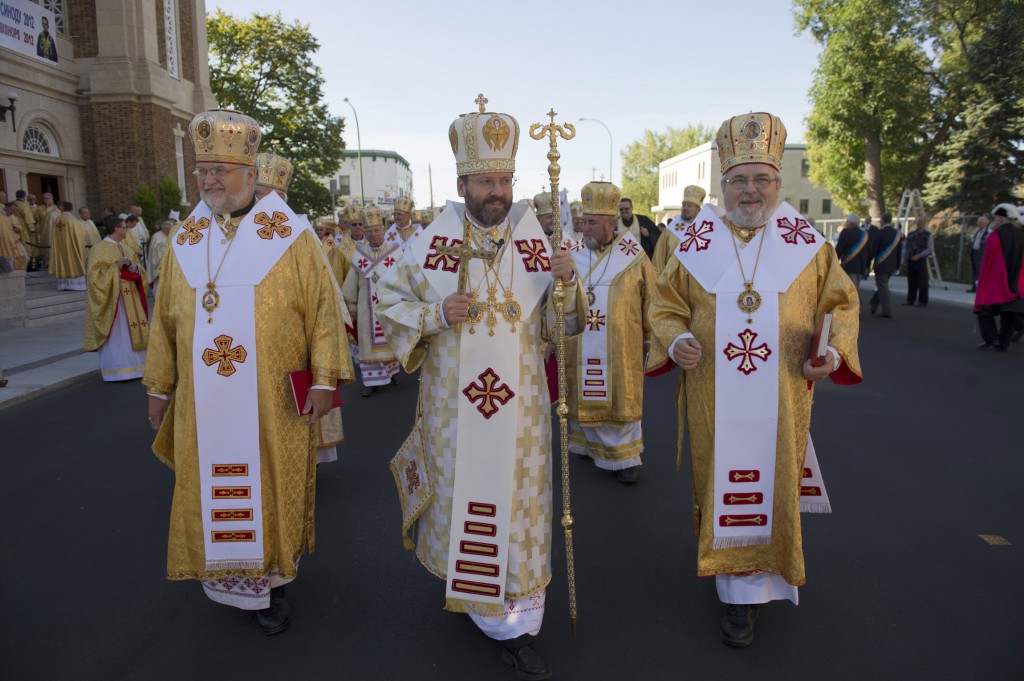
By Barb Fraze
Many Ukrainian Catholic leaders serving the faithful outside the homeland face a dilemma: Do they serve the needs of the new immigrants and elderly by using Ukrainian in liturgies, or do they minister in English to keep younger people coming to church?
Ukrainian “has revived a little with the new immigrants,” who want their native language used in church so their children will know how to speak it, said Archbishop Stefan Soroka of Philadephia. Some places, he added, place an “inordinate emphasis” on Ukrainian-language liturgies.
Yet, especially among teens and younger Americans, “even those who speak Ukrainian don’t want to go to a Ukrainian service,” he said.
Parents tell priests they are tired of arguing with their children about going to a service they do not understand.
“You don’t hear them protesting – they just walk away,” he told Catholic News Service.
In large Ukrainian Catholic parishes, liturgies are offered in Ukrainian and English.
Of his 67 parishes, he said, only two would not offer bilingual homilies.
But the Philadelphia Archdiocese’s situation is even a bit more complicated: Many immigrants are from Eastern Ukraine, and their language is Russian, so priests minister to them in their native language.
This upsets Ukrainian nationalists, Archbishop Soroka said, “but we can’t hold back evangelisation because of Ukrainian nationalists.”
“If we don’t reach out to them,” Russian-speaking Ukrainians will go to Orthodox or evangelical churches, he said.
In Chicago, which has a large ethnic Ukrainian population, some fourth-generation Ukrainians still speak their homeland’s language, and many young people are forced to learn it, said Bishop Richard Seminack.
Yet after about age 15, “you become adapted to the American culture” and lose the language, he said.
If liturgies are offered only in Ukrainian, young people “leave the church or go to the Roman Catholic Church or no church at all.”
Bishop Seminack, whose diocese includes the whole Western United States and extends into Hawaii, said in other Midwestern communities and along the West Coast, parishes have adapted English into the liturgy.
But in Chicago, three of the Sunday liturgies at the cathedral use only Ukrainian, and only one is celebrated in English.
In the diocese that includes Great Britain and Ireland, “We still don’t have liturgies in English … in all our churches,” said Bishop Hlib Lonchyna.
“It’s a problem and it’s a blessing,” he said. “It’s a blessing” because – especially in London – new immigrants feel at home in the church.
But some parish priests cannot speak English well enough to celebrate English-language liturgies, and some elderly Ukrainian Catholics “get very tense when things get celebrated in English,” he told Catholic News Service.
“Because of this mentality, we have lost a lot of people,” he added.
Bishop Peter Stasiuk of Melbourne, Australia, said language is not an issue in his diocese, which includes Australia and New Zealand.
Most immigrants from Ukraine arrived after World War II, and “we have integrated into the Australian community very well,” he told CNS. – CNS